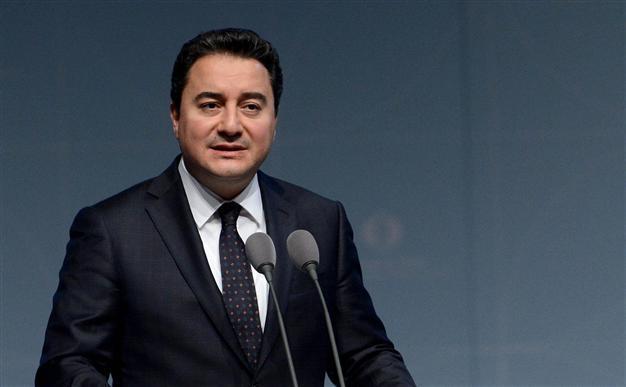Turkey’s IMF journey as debtor ends, says minister
ISTANBUL

Turkish Deputy Prime Minister Ali Babacan. AA Photo
Turkey will enter a debt-free period tomorrow after 19 years, Turkish Deputy Prime Minister Ali Babacan said ahead of the payment of the last installment of its debt to the International Monetary Fund (IMF).“Up to this day, Turkey has signed 19 stand-by agreements with the IMF. We ended the last one in May 2008, and we haven’t used loans for five years,” Babacan said today during a live interview aired on private broadcasters NTV and CNBC-e.
Turkey has borrowed nearly $50 billion from the fund in 47 years.
All of the debt Turkey owes to the International Monetary Fund (IMF) will be paid tomorrow, as the debt, which rounded up to $23.5 billion, will be ended with the payment of last slice of $422.1 million.
Turkey’s last standby agreement with the fund was in 2005, and it expired in May 2008. The country has gradually reduced its debt from $23.5 billion in 2002.
The country, which was struggling with the adverse impact of the 2008 global crisis and slowdown of economic growth, considered inking a new agreement with the IMF in 2009 and held months of tough negotiations with the lender.
“But at that time we decided we didn’t need the IMF, and we haven’t needed it since,” Babacan said, adding the foreign capital flow that came to Turkey “thanks to maintained trust and stability” has pumped an impetus into the private sector that ruled out the necessity of IMF financing.
Babacan also noted the prescriptions of the IMF were formed in accordance with the government’s own program and Turkey had not been forced to do anything it was not content with.
Turkish Prime Minister Recep Tayyip Erdoğan, however, had complained about the IMF directives during his speech at the European Bank of Reconstruction and Development’s annual meeting held in Istanbul last weekend.
“It [the IMF] is trying to give political lessons, but I’m a politician. I would listen and learn politics from a politician but not from an officer of the IMF,” he said, criticizing the global lender’s conditions.
Now, the Turkish government is enjoying declaring not only that it will no longer be a debtor, but also that it will be a lender to the fund as Turkey and the IMF have agreed on a $5 billion contribution from Turkey.
The IMF made a special request to Turkey to lend $5 billion during the Group of Twenty meeting held in Mexico in November, said Babacan, one of the participants at the meeting.
Wiping out its debt and becoming a contributor makes Turkey a part of a global transformation that sees changing roles, according to Babacan.
“Recently, advanced countries have also started to receive IMF loans. Turkey will also change the picture by paying the last part of its debt,” he said.
Elaborating on the conditions of its contribution, he said the Turkish government had asked for the source to be kept among Turkish reserves and liquidity for it to be available for withdrawal in case it is needed. This way the loan will be not reflected as a loss in Turkey’s current account balance figures.
















